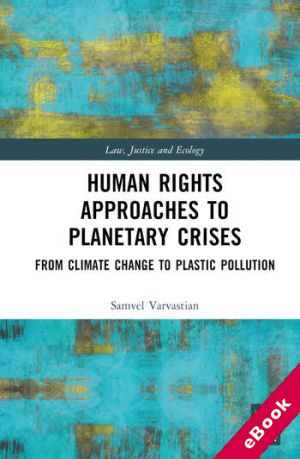
The device(s) you use to access the eBook content must be authorized with an Adobe ID before you download the product otherwise it will fail to register correctly.
For further information see https://www.wildy.com/ebook-formats
Once the order is confirmed an automated e-mail will be sent to you to allow you to download the eBook.
All eBooks are supplied firm sale and cannot be returned. If you believe there is a fault with your eBook then contact us on ebooks@wildy.com and we will help in resolving the issue. This does not affect your statutory rights.
This book analyses over twenty years of rights-based litigation in the areas of climate change and plastic pollution in order to assess the value of rights in confronting and overcoming planetary crises.
We live in an age of planetary crises such as climate change, biodiversity loss, and plastic pollution, which take a huge toll on communities all around the world, endangering their fundamental interests. But can the lack of government action on these crises, or action that worsens them, amount to violations of human rights? Many courts are grappling with this question, as rights-based litigation becomes increasingly common. By focusing on climate change and plastic pollution as case studies, this book examines the viability of rights claims when confronting planetary crises in courts. From early attempts to pursue rights claims in response to planetary crises in the 2000s, to high-profile court wins in such cases in the 2010s, and to the spread of such cases across dozens of jurisdictions by the 2020s, rights claims in climate change and plastic pollution litigation have become a truly global phenomenon. Through a systematic and in-depth analysis of such litigation in more than thirty jurisdictions, this book identifies factors that determine the viability of rights claims when confronting planetary crises. It reveals that, even though not all litigation fora are equally favourable to such claims, human rights can indeed be successfully invoked in different types of legal action.
This book will be of considerable interest to policymakers, legal scholars and practitioners, as well as students, who work in or study environmental and climate change law, human rights law, constitutional law, and international and comparative law.